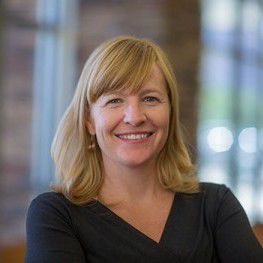On the surface, “more choice” seems better. Here in the U.S., we are driven by the concept that competition benefits the consumer. That’s really only true if the consumer is an informed one, who knows what they want and knows what they’re buying.
Last week, there was an article about Moab Regional Hospital’s opposition to state funding for a proposed clinic in Spanish Valley (“Unhealthy competition?” Moab Sun News, pub. Jan. 22, 2020). This funding comes from a pool of money set aside to address regional needs in rural areas. The proposed facility is eight miles from Moab Regional Hospital, less than a mile over the Grand/San Juan county line.
Our region has real needs, but this clinic wouldn’t meet them. Instead, it would use government subsidies to compete with a local private non-profit, simply duplicating already available services.
In rural healthcare, expensive equipment and highly-trained clinicians coupled with a smaller pool of patients lead to razor-thin margins. In rural settings, diluting the volume of patients either leads to an increase in price or, if prices stay the same, a decrease in revenue.
Folks might not know it, but Moab Regional Hospital is unusual among rural hospitals. We are one of a handful of independent, nonprofit rural hospitals left in the state, where bigger systems have captured most of the market. Tourism supports our hospital and has allowed us to provide opportunities not typically available in similar areas.
However, Google “rural hospital.” The second suggestion is “rural hospital closure.” In 2019, there were a record number of rural hospital closures across the country.
Moab Regional Hospital was close to that fate as recently as 2012. Thankfully, MRH has not only avoided closure, it has built programs and provides services that are often unheard of in rural areas – services that don’t always help our bottom line, but meet important community needs like obstetric care, addiction treatment, 24-hour emergency care and our commitment to helping everyone in our community afford quality healthcare. These may seem like regular hospital programs, but many rural hospitals struggle to provide similar services.
MRH has a team of dedicated obstetric nurses with years of experience caring for moms and babies during labor and birth. While it is expensive, we believe ensuring specialty training and experience are always on-hand is worth it when you have two lives on the line.
Our emergency room is always staffed with a physician and at least two nurses. At many rural hospitals, emergency patients can wait 15-30 minutes for a physician to arrive. This might be the difference between life or death, so MRH invests in a team that is ready for you and your loved ones, day and night.
According to surveys, the number one need in our community is access to mental health and addiction medicine. That’s why we’ve hired a psychological team as well as committing to sharing resources with Four Corners Community Behavioral Health. This team will help people in Moab and may save lives, but the hospital will not make money from this program. This important commitment comes at a significant cost.
We don’t turn to our community to make a profit. Instead, we offer uninsured patients an automatic 39% discount, and we offer an additional 20% discount if patients promptly pay within 30 days. In addition, we have a sliding scale financial aid program that even takes into account healthcare bills from other hospitals. Last year, MRH gave away more than $5 million in uncompensated care to our community – which includes residents of both Grand and San Juan counties.
We’re able to do this because of the few revenue-generating services that San Juan Health District proposes to duplicate, which are clinic and diagnostic services (e.g. radiology and lab work). Diagnostic services often come with big price tags, hefty service contracts and technicians from far-away places charging a premium.
The information shared here is just scratching the surface, but I’m out of words. Thankfully, it’s not my job to decide what our community wants for healthcare, it’s my job to listen and respond. We heard that the community wanted evening and weekend access to providers, so we opened Urgent Care, available 365 days a year. In 2019, we heard that the community is frustrated with wait times for primary care, so we are recruiting more providers.
It concerns me that many in our community don’t realize that duplicating revenue-producing services puts the care we rely on at risk for the sake of “choice.” Many programs that people depend on in Moab are unheard of in rural areas, and bring a level of access and quality to health care that we might regret losing. To make good choices, we must know what we are really choosing.
Jen Sadoff is the CEO of Moab Regional Hospital and a 20 year resident of Moab.



